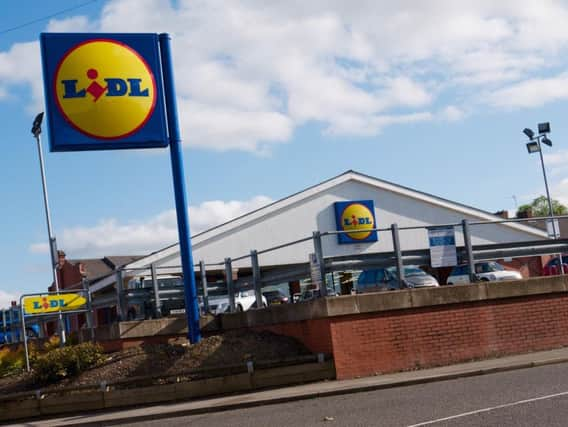Retailers find it harder to drive sales as Brexit deadline looms


Read more
>Latest supermarket data from Kantar >Five business stories for todayThe latest data from Nielson found that grocery sales slowed to their lowest September growth for two years.
Shopping momentum has fallen with grocery sales slowing to +1.7 per cent in the last four weeks, according to Nielsen.
Advertisement
Hide AdAdvertisement
Hide AdSunny weather in the first weeks of September boosted sales in soft drinks (+2.7 per cent), followed by crisps and snacks (+2.3 per cent) and frozen foods (+2.1 per cent). In contrast, general merchandise sales fell by -4.7 per cent, suggesting a weakness in discretionary non-food spend.
In terms of retailer performance over the last 12 weeks, sales at Tesco and Sainsbury’s remained broadly flat, while Asda and Morrisons experienced a slight decline, Neilsen said.
Sales at the discounters Aldi and Lidl continued to grow but at a slower rate than earlier this year.
A Nielsen spokesman said: "With the slowdown in recent weeks, UK supermarkets will need to increase advertising and promotion efforts to encourage consumers back into shops ahead of the ‘golden quarter’ of seasonal shopping around Christmas and New Year."
Advertisement
Hide AdAdvertisement
Hide AdData from Nielsen AdIntel reveals that in the first eight months of the year, Aldi ranked as the top supermarket advertising spender, increasing spend by over 9 per cent to £25.7m. Sainsbury’s has more than doubled spend so far in its anniversary year to £11m. However, advertising spending overall by UK supermarkets has declined by 1 per cent.
Mike Watkins, Nielsen’s UK Head of Retailer and Business Insight, said: “With volume sales still in decline at major UK supermarkets, it’s clear that shoppers are continuing to hold back spend. Against a backdrop of simmering economic uncertainties and the looming deadline of Brexit, as well as the UK having its lowest food inflation rate since April 20183, retailers are finding it more of a challenge to drive topline sales.”
Mr Watkins concluded: “Though many retailers are starting to introduce price cuts to help regain momentum after the unpredictable summer, it is evident that retailers will need to invest more heavily in promotional and advertising activity if they want to have the best chance of success in the run up to the seasonal shopping period. This should help lift consumer buying momentum and kick start Christmas and seasonal shopping.”
Barney Farmer, UK commercial director at Nielsen, said: “The Christmas season is one of the most crowded times of the year for advertising - and also one of the most creative. An effective ad is one that drives sales, builds brands and engages viewers’ emotions. Importantly, advertisers need to ensure creative synergies across the campaign - TV, print, digital, in-store, etc. - the aim is to have all of your advertising working together so that your brand can really cut through.”